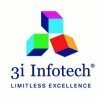Filter interviews by
Sonata Software Network Engineer Interview Questions, Process, and Tips
Sonata Software Network Engineer Interview Experiences
2 interviews found
I applied via Naukri.com and was interviewed in Nov 2024. There was 1 interview round.
(3 Questions)
- Q1. What is the SMTP?
- Q2. What is the RSMTP?
- Q3. Tell about TCP Rest

It is all about basic common questions like Mathematics,Reasoning,English etc
(6 Questions)
- Q1. Y is network is moreuseful to users?
- Ans.
A network is more useful to users because it allows for easy communication, access to resources, and sharing of information.
Networks enable users to communicate with each other easily and quickly.
Users can access resources such as files, printers, and applications that are shared on the network.
Information can be easily shared and disseminated among users on the network.
Networks provide a platform for collaboration and...
- Q2. Is there any breach in the network?
- Ans.
Yes, there is a breach in the network.
Unusual network traffic patterns
Unauthorized access to sensitive data
Unexpected system behavior or performance issues
Logs indicating suspicious activities
Security alerts or notifications
- Q3. How to use VPNs and why?
- Ans.
VPNs are used to create secure and private connections over public networks.
VPNs encrypt data to ensure confidentiality and protect against unauthorized access.
VPNs allow remote access to private networks, enabling users to securely connect to their work network from anywhere.
VPNs can bypass geographical restrictions and censorship, providing access to restricted content.
VPNs can be used to enhance online privacy by ma...
- Q4. What does DNS mean?
- Ans.
DNS stands for Domain Name System. It is a decentralized system that translates domain names into IP addresses.
DNS is responsible for resolving domain names to their corresponding IP addresses.
It allows users to access websites and other resources using easy-to-remember domain names instead of numerical IP addresses.
DNS operates through a hierarchical structure of servers, including authoritative DNS servers, recursive...
- Q5. Explain about OSI model?
- Ans.
The OSI model is a conceptual framework that standardizes the functions of a communication system into seven layers.
The OSI model stands for Open Systems Interconnection model.
It was developed by the International Organization for Standardization (ISO) in 1984.
The model is divided into seven layers: Physical, Data Link, Network, Transport, Session, Presentation, and Application.
Each layer has specific functions and int...
- Q6. Ips and IDS mean?
- Ans.
IPS stands for Intrusion Prevention System and IDS stands for Intrusion Detection System.
IPS is a security device that actively monitors network traffic to prevent malicious activities.
IDS is a security device that passively monitors network traffic to detect potential security breaches.
IPS can block or prevent malicious traffic from entering the network.
IDS can only detect and alert about potential security threats.
Bo...
(3 Questions)
- Q1. Y did u choose networking as carrer
- Ans.
I chose networking as a career because of my passion for technology and problem-solving.
Passion for technology and problem-solving
Interest in understanding how computer networks function
Opportunity to work with cutting-edge technologies
Ability to troubleshoot and resolve network issues
Desire to contribute to the development of secure and efficient networks
- Q2. What is ur expected CTC
- Ans.
I would expect a competitive salary based on my experience, skills, and the market standards.
I would like to discuss the salary range for this position based on the responsibilities and expectations.
Considering my qualifications and the industry standards, I anticipate a fair compensation package.
I am open to negotiation and would appreciate a salary that reflects my expertise and contributions.
I believe a mutually ben...
- Q3. Thankyou for joining tgis company
Skills evaluated in this interview
Top trending discussions






Interview questions from similar companies

I applied via Naukri.com and was interviewed before Apr 2021. There was 1 interview round.
(2 Questions)
- Q1. Basic python list tuples set dictionary related questions
- Q2. Decorators generator and django rest framework
Interview Preparation Tips

Interview Questionnaire
1 Question
- Q1. OOPS, SQL Queries

I applied via Campus Placement and was interviewed in Nov 2020. There were 4 interview rounds.
Interview Questionnaire
1 Question
- Q1. Basic OOPS concepts, statements, loop, c# basic questions, academic projects
Interview Preparation Tips

Software Engineer Interview Questions & Answers
Bounteous x Accoliteposted on 20 Jun 2021
I applied via Campus Placement and was interviewed in May 2021. There was 1 interview round.
Interview Questionnaire
1 Question
- Q1. Dsa java oops dbms networking
Interview Preparation Tips
You have to be very strong in DSA.

Interview Questionnaire
1 Question
- Q1. Basic javascript questions , clouser, promise
Interview Preparation Tips

I applied via Naukri.com and was interviewed before Nov 2020. There were 3 interview rounds.
Interview Questionnaire
2 Questions
- Q1. Basic questions on javascript, angular, html,css
- Q2. Questions on localstorage , tokens, security, interceptors
Interview Preparation Tips

I applied via LinkedIn and was interviewed before Jun 2020. There were 3 interview rounds.
Interview Questionnaire
1 Question
- Q1. Basics Of JS

I applied via Recruitment Consultant and was interviewed in Oct 2020. There were 6 interview rounds.
Interview Questionnaire
1 Question
- Q1. Oops concepts with examples, SQL query to find second highest salary, diff between fail fast and fail safe, how did u implement security in your app, etc
Interview Preparation Tips
Sonata Software Interview FAQs
Tell us how to improve this page.
Sonata Software Interviews By Designations
- Sonata Software Team Lead Interview Questions
- Sonata Software Software Developer Interview Questions
- Sonata Software Consultant Interview Questions
- Sonata Software Digital Engineer Interview Questions
- Sonata Software Software Engineer Interview Questions
- Sonata Software Functional Consultant Interview Questions
- Sonata Software Technical Lead Interview Questions
- Sonata Software Senior Consultant Interview Questions
- Show more
Interview Questions for Popular Designations
- Senior Network Engineer Interview Questions
- Network Administrator Interview Questions
- Network Support Engineer Interview Questions
- L2 Network Engineer Interview Questions
- Network Engineer L1 Interview Questions
- Network Security Engineer Interview Questions
- Network Specialist Interview Questions
- Network Analyst Interview Questions
- Show more
Sonata Software Network Engineer Interview Process
based on 1 interview
Interview experience
Interview Questions from Similar Companies
Fast track your campus placements
|
Consultant
623
salaries
| ₹6.5 L/yr - ₹19.3 L/yr |
|
Senior System Analyst
608
salaries
| ₹3.8 L/yr - ₹12.4 L/yr |
|
Software Engineer
374
salaries
| ₹3 L/yr - ₹13.1 L/yr |
|
Digital Engineer
316
salaries
| ₹2.6 L/yr - ₹10.1 L/yr |
|
System Analyst
312
salaries
| ₹3 L/yr - ₹10 L/yr |

ITC Infotech

3i Infotech

Cybage

Xoriant
- Home >
- Interviews >
- Sonata Software Interview Questions >
- Sonata Software Network Engineer Interview Questions















